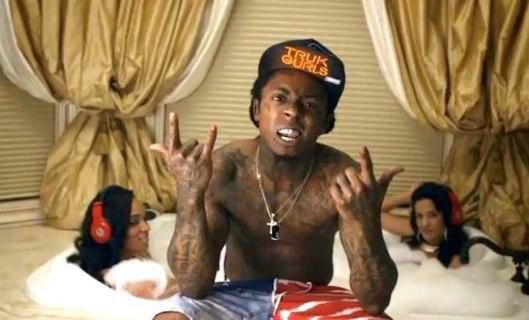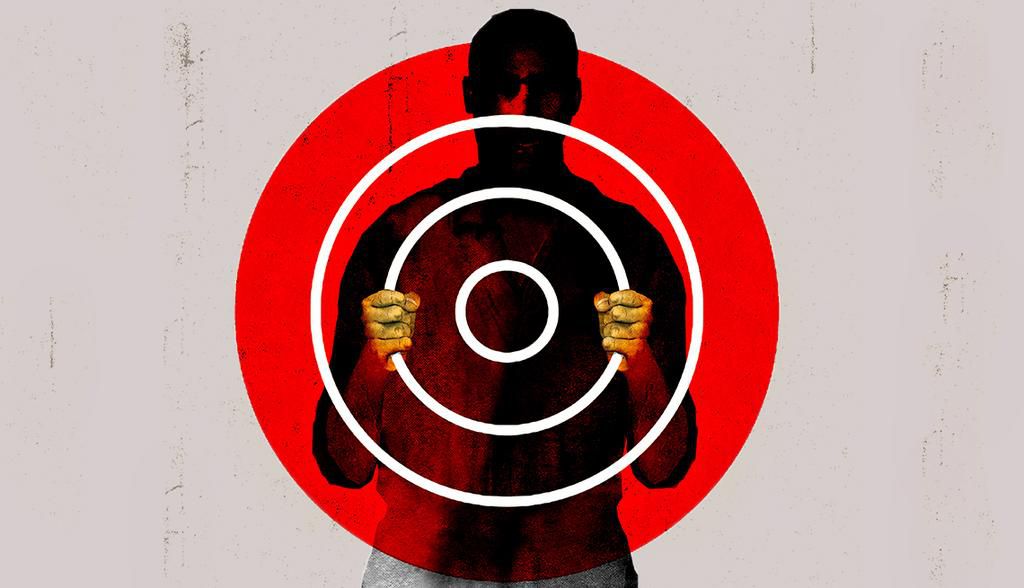Here is why victim profiling exists amongst Nigerian security operatives
)
Circa 2006, the Special Anti-Robbery Squad (SARS) was formed to combat the festering scourge of robbery facing Nigeria - it worked.
The idea was premised upon the Operation Sweep, formed by former Lagos State Military Administrator, Colonel Buba Marwa around 1997. The same was also recreated in Ibadan, Oyo State under the name Operation Gbale.
Fast-forward 2009, SARS found its way into Nigerian Universities as a medium to repress the spiking surge of internet fraud and cultism which had spilled to the streets. This era also coincided with the radicalism of style and fashion evolution amongst Nigerians under 35.

People took on more avant-garde appearances and risque fashion choices because of an innate will to express and take more risks with more liberty than the generation before us - where the parents were more conservative and society had even more conservative standards.
ALSO READ: 9 things to know about #EndSARS
We also wanted to practice the culture we imbibed from consuming western content like Hip-Hop culture. For better or worse, we cut the conservative style and were heavily involved in the expressionism; we invested in tattoos and dreadlocks - alongside other risque hairstyles.

For the first time, dreadlocks, men on earrings, tinted hair, multiple piercings and tattoos became practice that could simply not be limited to what a lot of Nigerians deem 'bad kid aesthetics.'
It was also era that Afro made a comeback and beard gang debuted circa 2014.
We understood good behaviour and how good kids carried tattoos and dreadlocks, but were the generation that questioned everything, even with the decadence in internet fraud, crime, prostitution and promiscuity around us.
Victim profiling

What is victim profiling?
Also called offender profiling or criminal profiling, Wikipedia refers it as an investigative tool used by law enforcement agencies to identify likely suspects and has been used by investigators to link cases that may have been committed by the same perpetrator.
It helped western law enforcement close many cases, but in Nigeria, it is a different case entirely - it is a tool for judgement, harassment and extortion.
The problem was how our parents, and the generation before us still subscribed to conservative expression and saw risque, avant-garde and radical expression as problematic. There was a problem with tattoos, dreadlocks, and multiple piercings - some even attributed beard to bad behaviour.
While they grew up, a lot of the kids that expressed these traits simply had questionable character, but who was to tell them that this era is simply different? Nobody.
This older generation was also from an era that slightly missed the flourishing of Nigeria after it joined OPEC and hosted FESTAC '77. All they knew was oppression and authoritarianism of military rule, so they didn't understand self expression.
Sadly, law enforcement officers of the time were from that era and they also caught the idea, and as SARS and members of the Nigerian Police began to frequent Nigerian Universities and street corners to shadow internet fraud, crime, cultism, prostitution and weed patronage, they judged all of us by the few specimen they found.
They arrested people for tattooing, dreadlocks, owning laptops, and driving expensive cars.
None of us could wash ourselves clean of the traits of bad behaviour already set in older minds. Equally, these law enforcement officers also had a limited view on life with worrying myopia and smirks of terrible emotional intelligence, so complexity of diverse processing of concepts was simply lost on them.
Therefore, they couldn't simply process how good children would want to have dreadlocks, tattoos and (more) piercings; afford laptops and good cars. Even worse, corruption within Nigerian Law Enforcement also festered.
Thus, they didn't care who they caught. All they required was 'probable cause' or 'reason' to 'suspect' you of being one of the 'bad children' due to your radical expressionism in hairstyle (dreadlocks or tints), fashion choices (piercings and tattoos and skimpy), accessories (like Laptops and multimedia phones) or even ownership of cars.
They stereotyped us. Even when they probably knew the fault of this stereotype, they simply didn't care to separate and verify because it paid them.
The stereotype fostered gainful corruption; the got kickbacks from the jittery who feared the claustrophobia and restriction of cells. They got kickbacks from children who needed to get their phones and laptops which get seized while walking the streets of Nigerian towns and cities.
These kids also fear being 'roped' by the Nigerian Police with manufactured accusations and trumped up charges.
A corrupt syndicate was established and woe be tied any clarity that sought to rob them of it - they didn't care. For them, it was a job about terrible pay, which wasn't really regular from the Nigerian government. It became a systemic issue and Nigerian youths bore the wrath.
So today, despite sufficient knowledge of new realities, members of the Nigerian police still harass and harry Nigerian youths for how they look or what they carry. Last week, it was about Yinka Badmus.
Who is Yinka Badmus?
Last week, news broke that Nigerian photojournalist 24-year-old, Yinka Badmus who works with Talk Village International was arrested on December 31, 2018, allegedly because of his hairstyle - dreadlocks.
Claims were that he was simply eating noodles close to his house at Pedro Bus-stop, Gbagada, Lagos when he was arrested. He was then remanded at Ikoyi Prison by the Lagos State Police Command Anti-Cultism Unit for 14 days before being released with reported health issues.
Reports also claim that his Fundamental Human Rights have been breached as he has simply been blatantly denied of his right to call someone.
After approximately 14 days in custody he was released upon a statement from Lagos State Police Command through CSP Chike Oti with claims that Yinka Badmus was arrested on grounds of cultism - that's a photojournalist, by the way.
CSP Oti says, "To start with, it is ridiculous to say that the Anti-Cultism Unit of the Lagos State Police Command charged a suspect to court because of his hairstyle. Clearly speaking, Yinka Badmus and 13 others were charged to Ogudu Magistrate Court on January 4, 2019, on two-count charges.
“The first count is conspiracy, i.e for conspiring amongst themselves to commit felony to wit membership of unlawful society contrary to and punishable under Section 411, Cap CH, C17, Vol. 3 Laws of Lagos, 2015. The second count holds them for belonging to an unlawful society known as Eiye confraternity contrary to and punishable under Section 42(a), Cap CH, C17 Vol. 3, Laws of Lagos State 2015.
“The suspects were, however, granted bail In the sum of fifty thousand Naira (N50,000) by a court of competent jurisdiction. However, those who could not meet the bail conditions were remanded in prison custody pending when they would meet the stipulated conditions for their bail. This is an issue that is neither within the purview of the Force nor its control.
“In view of the development, the Command wishes to put the matter straight. For the avoidance of doubt, there is no section of the Lagos State Criminal Law and indeed the Criminal Code, that criminalises hairstyle.
“Therefore, there is no way the said Yinka Badmus could have been charged to court for wearing dreadlocks by the police. Suspects are charged to court based on the existing law and not for mundane reasons.”
Pulse talks why society judges on appearance
In 2017, Pulse wrote about how our society judges on appearance and draw inferences with the perils of simple assumptions, with little to no proof on the legitimacy of such assumptions.
While certainly, 'packaging' helps to foster the narrative by making successes of certain people like the slaves to fakeness at NICON Hilton Hotel, Abuja lobby, for the most parts, judging on appearance creates a stereotype.
The problem with creating a stereotype is that, anyone with remote similarities to that stereotype gets judged or even harmed, without any proof that he belongs to that stereotype.
No vehicle fosters that problem like the Nigerian Police and its offshoot, SARS or whatever name they go by these days.
ALSO READ: The burning passion of Ooni
However, judging is human and peculiar to all of us
The human mind is trained to judge off impressions. If not, why do we keep offering tacit validation for the cliché, 'First impressions last long.' We won't admit it, but we all judge people.
In fact, our minds get piqued whenever we see people who fit certain stereotypes. This human tendency to judge is also responsible for some of the worst atrocities committed by paranoid or even intentionally cruel people.
Two days ago, I visited by barber to shed my bushy strands, now packed like the locks of weed smoker. Who I saw on the seat was a beautiful lady having her hair dyed orange.
That wasn't what struck me, however. What struck me was her incredibly uncouth nature when she stood up to leave as the outrageously placed piercings and hideous tattoos on the neck, knuckles and even her calf became obvious on a tender light skin tone.
I wouldn't lie and I'm not proud of it, but I judged he; the placement of her aesthetics and the sheer crassness with which they were designed. To go with that, a brothel was only 100 metres from my barber's shop.
Thus, I assumed she must have come from there. As it turned out, she was, but that didn't avail my guilt at judging her, probably due to the wokeness Twitter has ingrained in my soul - cries.
My barber himself
Same thing goes for my very altè barber, with his XXXTentacion cum Lil Yatchy haircut - minus the tints - hairstyle, and very restless idea to living. If you were meeting him for the first time, you'd think he had ADHD.

I judged him too, I thought to myself - he must be on drugs. I also felt guilty to have judged him, but only on my third visit, I saw him order rohypnol.
These stereotypes are why our parents warn us to not dress a certain way. Not because of anything else, but the problem of being judged or harmed by society just for your appearance.
Nigerian Police inheriting SARS traits
Yinka Badmus looks like another victim of society's tendencies for victim profiling; the backwardness of it and the sad rewards of such judgements - backpays and corruption.
Last year, Vice President, Yemi Osinbajo ordered a 'restructuring' of SARS, not a dissolution. They were going to be under one name and under another arm - like that was ever the problem.

The problem has always been the people, not just the name. We shouldn't have celebrated the news like we did.
The problem was never going away if the people behind SARS and who gave SARS that reputation were not laid off or granted leave for serious affirmative action to stop the abuse of office and power.
Now, SARS might have been restructured, but inevitably, we still have SARS-problems - nothing has changed.
Until we fix the problem with the people who constituted SARS and find a way to understand the era of avant-garde expressionism we live in, with totally no relations to irresponsibility - unless proven otherwise - there will more Yinka Badmuses.
![Aisha blows hot on Security forces; Y7ou won't believe what she said [VIDEO]](https://image.api.sportal365.com/process/smp-images-production/pulse.ng/17082024/1f976edf-1ee2-4644-8ba1-7b52359e1a8f?operations=autocrop(640:427))
)
)
)
![Lagos state Governor, Babajide Sanwo-Olu visited the Infectious Disease Hospital in Yaba where the Coronavirus index patient is being managed. [Twitter/@jidesanwoolu]](https://image.api.sportal365.com/process/smp-images-production/pulse.ng/16082024/377b73a6-190e-4c77-b687-ca4cb1ee7489?operations=autocrop(236:157))
)
)
)
)
)
)
)
)
)
)
)